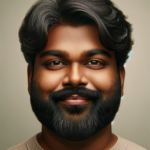A recent study from the University of British Columbia Okanagan led by Dr. Mir Faizal, Adjunct Professor at UBCO’s Irving K. Barber Faculty of Science, along with collaborators Dr. Lawrence M. Krauss, Dr. Arshid Shabir, and Dr. Francesco Marino, concludes that the universe cannot be simulated. Their findings, argue that the deepest layers of reality operate in a way that no algorithm could ever fully replicate.
Faizal, M., Krauss, L. M., Shabir, A., & Marino, F. (2025). Consequences of Undecidability in Physics on the Theory of Everything. Journal of Holography Applications in Physics, 5(2), 10‑21. https://doi.org/10.22128/jhap.2025.1024.1118
For decades, the idea that our universe might be a simulation has captured the imagination of both scientists and the public. It is often depicted in science fiction, such as in films like The Matrix, where reality is an artificial construct controlled by advanced computational systems. While this notion has remained largely speculative, Dr. Faizal and his colleagues sought to address the question using the tools of mathematics and physics. Their approach moves beyond philosophical debate and instead applies rigorous logic to explore whether a universe governed purely by computational rules could ever give rise to the reality we observe.
The research focuses on the nature of reality itself, which modern physics increasingly suggests may not consist of fundamental space and time. Classical Newtonian physics described matter and motion in terms of objects moving through space, but this perspective has been superseded by Einstein’s theory of relativity and quantum mechanics. Current work in quantum gravity proposes that space and time emerge from an underlying informational structure rather than existing as fundamental entities. This structure, sometimes referred to as a Platonic or informational realm, forms the mathematical basis from which the observable universe arises.
Dr. Mir Faizal from University of British Columbia Okanagan stated,
“Drawing on mathematical theorems related to incompleteness and indefinability, we demonstrate that a fully consistent and complete description of reality cannot be achieved through computation alone. It requires non-algorithmic understanding, which by definition is beyond algorithmic computation and therefore cannot be simulated. Hence, this universe cannot be a simulation.”
Dr. Faizal’s team demonstrated that even this foundational layer cannot be fully captured through computation alone. They employed principles from mathematical logic, including Gödel’s incompleteness theorem, to show that any system based solely on algorithms is necessarily incomplete. Gödel’s theorem establishes that within any sufficiently complex formal system, there exist true statements that cannot be proven using the rules of that system. In other words, certain truths lie beyond the reach of algorithmic processes.
To illustrate, consider a statement such as “This statement is true but unprovable.” If a system could prove it, it would contradict itself. If the system cannot prove it, the statement is nonetheless true, demonstrating that some truths cannot be derived through computation alone. Applying this concept to physics, Dr. Faizal and his collaborators concluded that a complete and consistent description of reality requires what they term non-algorithmic understanding, a type of comprehension that transcends any computational procedure. This understanding underlies the laws of physics themselves, suggesting that the universe is based on principles that cannot be fully encoded or simulated by a computer.
The study further addresses the recursive argument often raised in the simulation hypothesis. It has been proposed that if a universe could be simulated, intelligent life within that universe might in turn create its own simulations, producing layers of nested simulations. While this idea makes for compelling thought experiments, the researchers argue that it is mathematically impossible to fully simulate a universe whose foundational rules include non-algorithmic truths. Since simulations are inherently algorithmic and must follow step-by-step rules, they cannot reproduce a universe whose structure relies on principles beyond computation.
According to Dr. Lawrence Krauss, a co-author of the study, this research has significant implications for the search for a unified theory of physics. Traditionally, physicists have hoped that a theory of everything might be expressed as a set of computable rules capable of describing all physical phenomena. However, the study suggests that a truly fundamental theory cannot be derived solely from computational methods. Instead, any complete description of reality must incorporate non-algorithmic understanding, which precedes the existence of space, time, and conventional physical laws.
While the findings are primarily theoretical, they carry practical implications for engineers, computational physicists, and scientists engaged in simulation and modeling. Computational models, while highly effective for approximating and predicting natural processes, are ultimately limited by their algorithmic nature. The research serves as a reminder that certain aspects of reality may always elude simulation, regardless of computational power. For engineering applications, this highlights the importance of understanding the limits of modeling and of developing approaches that acknowledge phenomena that cannot be fully encoded into algorithms.
The study also prompts broader reflections on the role of mathematics in understanding the universe. By combining insights from quantum gravity and logic, the research bridges disciplines that are rarely examined together. It demonstrates that foundational questions about the nature of reality can be addressed using rigorous mathematical methods rather than relying solely on philosophical speculation.
Dr. Faizal emphasizes that their results provide a definitive mathematical answer to a question long considered untestable. By establishing that the universe is fundamentally non-algorithmic, the research repositions the simulation hypothesis from the realm of philosophical debate into the domain of scientific inquiry. While simulations remain valuable for modeling specific systems or approximating aspects of the universe, this work clarifies that no simulation, however powerful, could fully replicate the universe in its entirety.
In conclusion, the study led by Dr. Mir Faizal and his colleagues offers a clear and scientifically grounded statement on the nature of reality. The universe operates on principles that cannot be reduced to algorithmic computation, meaning that the vision of a fully simulated reality is mathematically impossible. This research not only challenges popular notions of simulated worlds but also invites scientists and engineers to consider the limits of computation in modeling and understanding complex systems. By demonstrating the necessity of non-algorithmic understanding, the work opens new avenues for exploring how mathematical, physical, and informational frameworks interact to create the reality we experience. It underscores the profound idea that while simulations can approximate aspects of nature, the full depth of the universe will always lie beyond the reach of computational systems.

Adrian graduated with a Masters Degree (1st Class Honours) in Chemical Engineering from Chester University along with Harris. His master’s research aimed to develop a standardadised clean water oxygenation transfer procedure to test bubble diffusers that are currently used in the wastewater industry commercial market. He has also undergone placments in both US and China primarely focused within the R&D department and is an associate member of the Institute of Chemical Engineers (IChemE).



